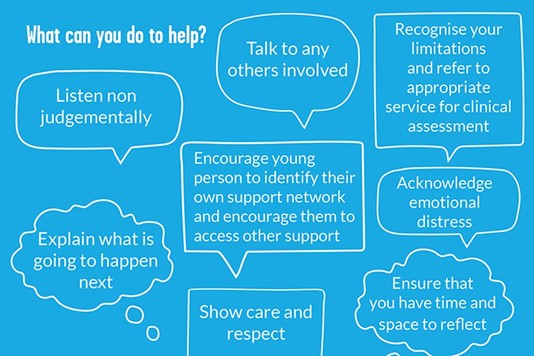Take the first step.
if you think you are affected by self-harm, talk to someone - a parent or relative you trust, perhaps a teacher or youth worker. If you don’t think you can confide in anyone, talk to your GP.
Why talk to your GP?
Self-harm can be a sign of other disorders that you need help with - such as depression(opens link in new window) or anxiety (opens link in new window) and they can refer you to the right people for treatment. You may also be referred to Child and Adolescent Mental Health Services (opens link in new window) so you can have an assessment for the right treatment for you.







